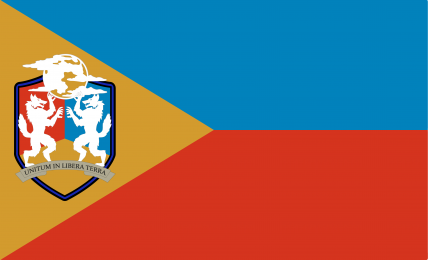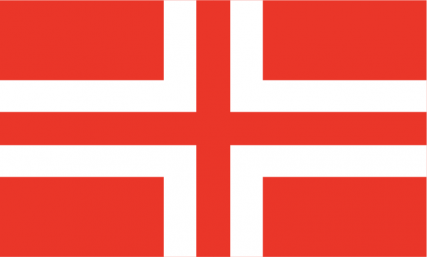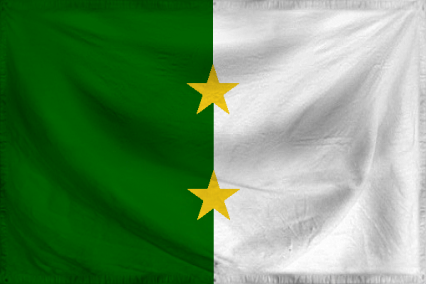
Advertisement
![]() by Victorious Decepticons » Fri Sep 14, 2018 3:00 pm
by Victorious Decepticons » Fri Sep 14, 2018 3:00 pm
Newaswa wrote:What is the greatest threat to your nation?Vallermoore wrote:The Victorious Decepticons.Bluquse wrote:Imperialist, aggressive, and genociding aliens or interdimensional beings that would most likely slaughter or enslave us
rather than meet up to have a talk. :(TurtleShroom wrote:Also, like any sane, civilized nation, we always consider the Victorious Decepticons a clear, present, and obvious threat we must respect, honor, and leave alone in all circumstances. Always fear the Victorious Decepticons.
The Huskar Social Union wrote: ... massive empires of genocidal machines.

![]() by Soyastan » Mon Sep 17, 2018 1:14 pm
by Soyastan » Mon Sep 17, 2018 1:14 pm

![]() by Nioya » Thu Sep 20, 2018 8:46 am
by Nioya » Thu Sep 20, 2018 8:46 am

![]() by Great Ohio » Thu Sep 20, 2018 1:48 pm
by Great Ohio » Thu Sep 20, 2018 1:48 pm

![]() by New Wolvers » Thu Sep 20, 2018 2:10 pm
by New Wolvers » Thu Sep 20, 2018 2:10 pm

![]() by Atlantic Republic » Sat Sep 22, 2018 5:25 pm
by Atlantic Republic » Sat Sep 22, 2018 5:25 pm


![]() by Atlantic Republic » Sat Sep 22, 2018 6:03 pm
by Atlantic Republic » Sat Sep 22, 2018 6:03 pm
Spam Spam Spam wrote:What type of electrical outlets does your nation use?


![]() by Gandoor » Sun Sep 23, 2018 2:03 pm
by Gandoor » Sun Sep 23, 2018 2:03 pm
Spam Spam Spam wrote:What type of electrical outlets does your nation use?

![]() by Ru- » Mon Sep 24, 2018 7:33 pm
by Ru- » Mon Sep 24, 2018 7:33 pm

![]() by Great Nortend » Tue Sep 25, 2018 3:30 am
by Great Nortend » Tue Sep 25, 2018 3:30 am

![]() by Coon Key » Sun Sep 30, 2018 1:26 pm
by Coon Key » Sun Sep 30, 2018 1:26 pm
Northern Westwald wrote:Neat


![]() by Vionna-Frankenlisch » Sun Sep 30, 2018 2:58 pm
by Vionna-Frankenlisch » Sun Sep 30, 2018 2:58 pm
New Edom wrote:Unwerth laughed. “Such hen lobsters are the Vionnans. But then, every Vionnan is half a sodomite."

![]() by Hairy Fish Island » Mon Oct 01, 2018 12:26 pm
by Hairy Fish Island » Mon Oct 01, 2018 12:26 pm

![]() by Sadiqstan » Tue Oct 02, 2018 3:25 am
by Sadiqstan » Tue Oct 02, 2018 3:25 am




![]() by Gandoor » Tue Oct 02, 2018 3:53 am
by Gandoor » Tue Oct 02, 2018 3:53 am

![]() by Vionna-Frankenlisch » Wed Oct 03, 2018 8:09 am
by Vionna-Frankenlisch » Wed Oct 03, 2018 8:09 am

New Edom wrote:Unwerth laughed. “Such hen lobsters are the Vionnans. But then, every Vionnan is half a sodomite."

![]() by Alvates » Fri Oct 05, 2018 11:11 am
by Alvates » Fri Oct 05, 2018 11:11 am

![]() by Van Hool Islands » Fri Oct 05, 2018 1:19 pm
by Van Hool Islands » Fri Oct 05, 2018 1:19 pm

![]() by Alvates » Sat Oct 06, 2018 10:34 am
by Alvates » Sat Oct 06, 2018 10:34 am
Spam Spam Spam wrote:What type of electrical outlets does your nation use?



![]() by Medwedian Democratic Federation » Wed Oct 10, 2018 1:59 pm
by Medwedian Democratic Federation » Wed Oct 10, 2018 1:59 pm

![]() by Kannap » Sun Oct 14, 2018 8:42 am
by Kannap » Sun Oct 14, 2018 8:42 am
Luna Amore wrote:Please remember to attend the ritualistic burning of Kannap for heresy

![]() by Ciggaroon » Mon Oct 15, 2018 2:51 pm
by Ciggaroon » Mon Oct 15, 2018 2:51 pm

![]() by Vallermoore » Fri Oct 19, 2018 5:23 pm
by Vallermoore » Fri Oct 19, 2018 5:23 pm

![]() by Kryatoyisra » Sat Oct 20, 2018 9:31 pm
by Kryatoyisra » Sat Oct 20, 2018 9:31 pm
Advertisement
Return to Factbooks and National Information
Users browsing this forum: No registered users
Advertisement